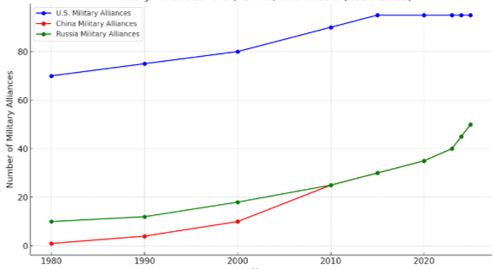The End of American Hegemony? Emerging Bipolarity in the New Global Order
Keywords:
Strategic Competition, Economic Competition, Belt and Road Initiative, Global Power Shift, Military Influence, U.S.-China RivalryAbstract
This research critically examines the decline of U.S. hegemony and the rise of a more competitive, multipolar global order, with particular focus on China’s ascent as a major global power. The study employs a mixed-methods approach, including secondary literature review, historical analysis, case studies, expert interviews, and quantitative analysis of economic and military data. Key findings reveal a significant decline in the U.S.'s share of global GDP, military spending, and international trade, while China's economic, military, and diplomatic influence has seen rapid growth. By 2025, China is projected to surpass the U.S. as the world's largest economy, driven by its Belt and Road Initiative, rising military spending, and increasing trade and diplomatic engagement. These shifts indicate a profound change in global power dynamics, signaling the emergence of a more contested and multipolar world order. The study contributes to understanding the evolving geopolitical landscape, where the U.S. and China vie for global leadership.








